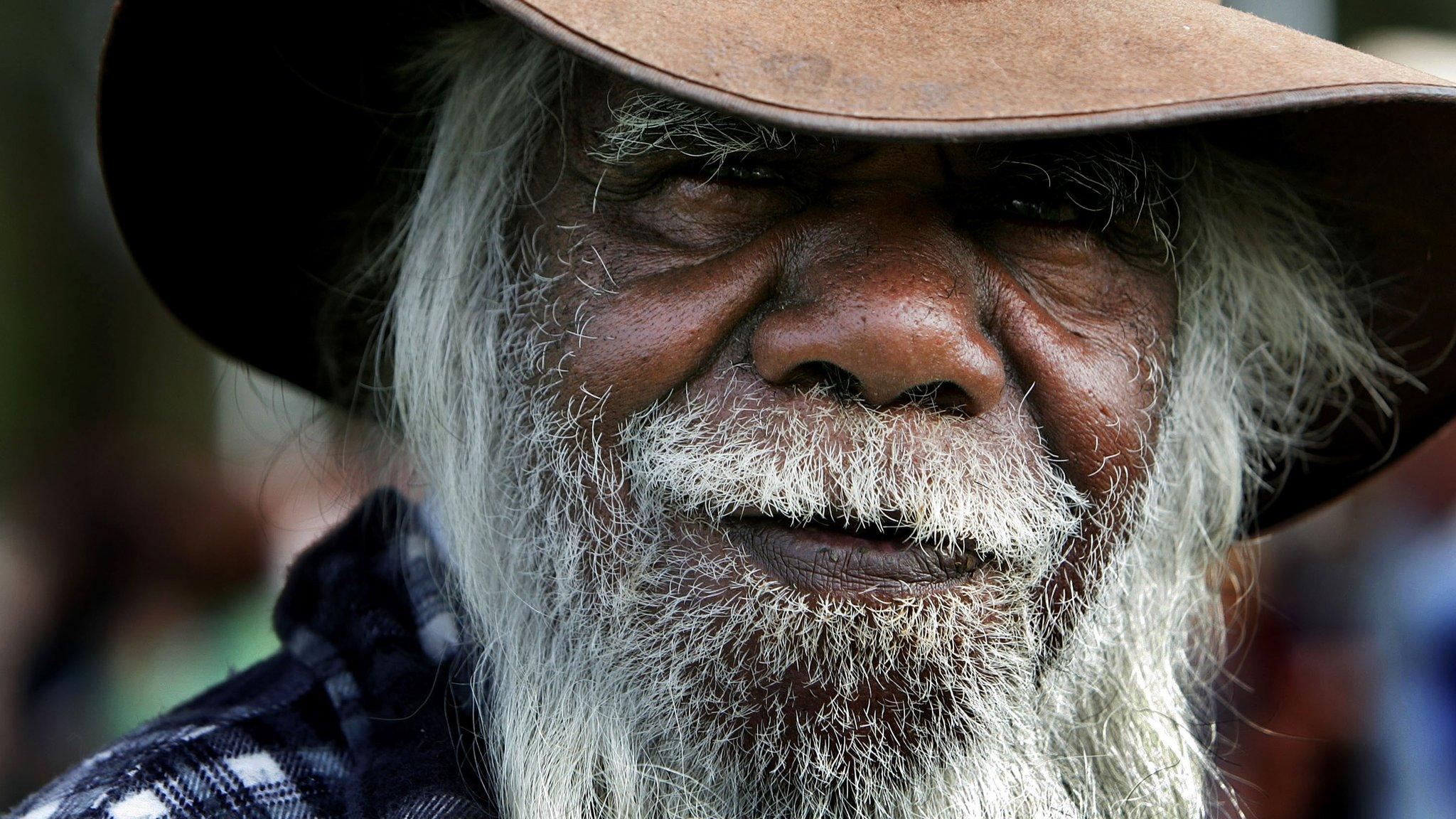Indigenous leaders debate Australia's constitution
- Published
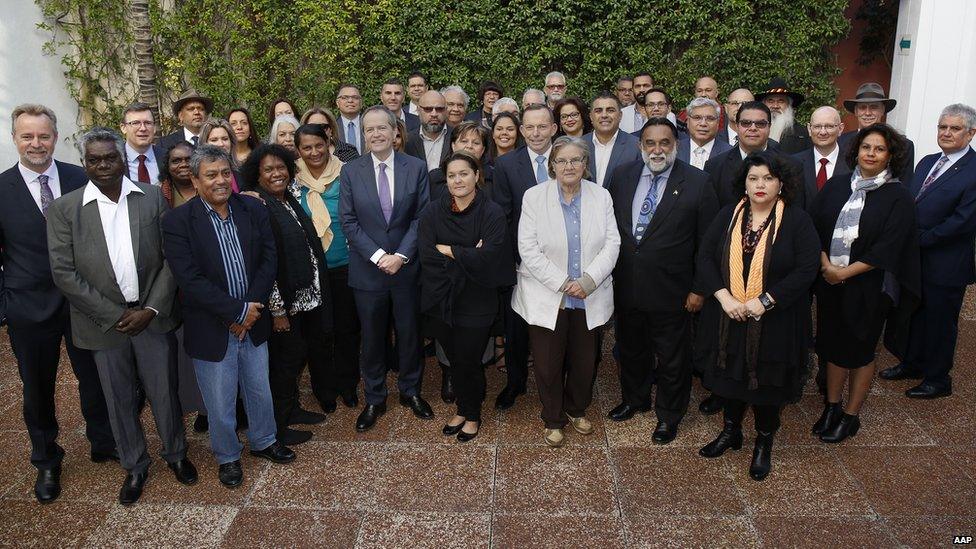
The Kirribilli summit was a historic meeting of representatives of Australia's first peoples
On Monday, Australia's top two politicians and 40 Aboriginal and Torres Strait Island leaders met to discuss changing Australia's constitution to recognise the nation's first people.
Billed as a historic meeting, it was held in Kirribilli in Sydney not far from where Britain established a penal colony in 1788 that would eventually become a new nation.
The current debate about how to recognise Indigenous Australians in the nation's founding document, and how to overcome that document's racist clauses, is controversial and highly charged.
The meeting, hosted by Prime Minister Tony Abbott and Opposition leader Bill Shorten, agreed to establish a council to examine the wording and timing of any referendum question put to the public.
The meeting also agreed to hold a series of community conferences across the country so the public could have a say in any changes to the constitution.
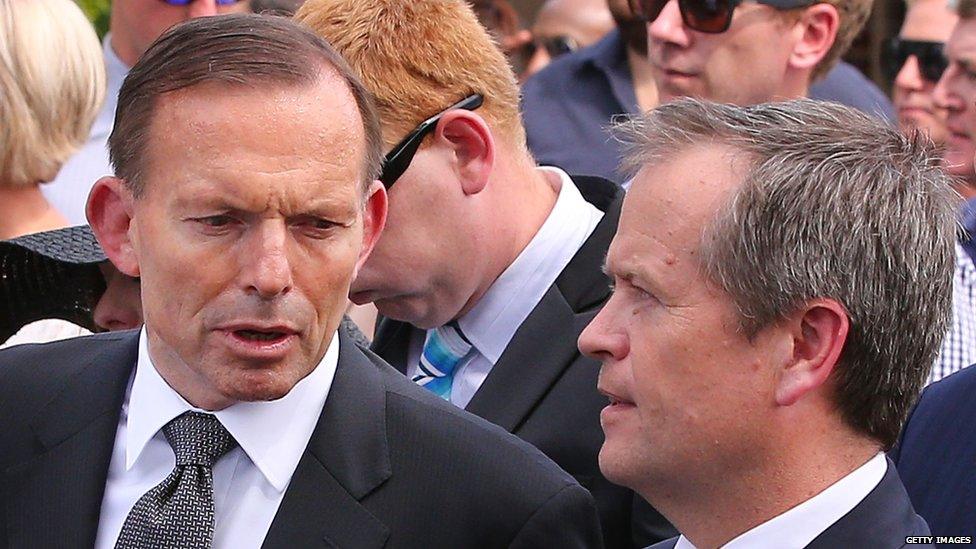
Mr Abbott (left) and Mr Shorten are working together in a rare display of bi-partisanship
Indigenous Australians are not mentioned in Australia's founding document and no treaty was ever negotiated between them and the British.
Two so-called "race provisions" allow the states to disqualify people from voting on the basis of their race, and allow laws to be made based upon a person's race.
The views of some of the Indigenous leaders present at Monday's meeting are summarised below.
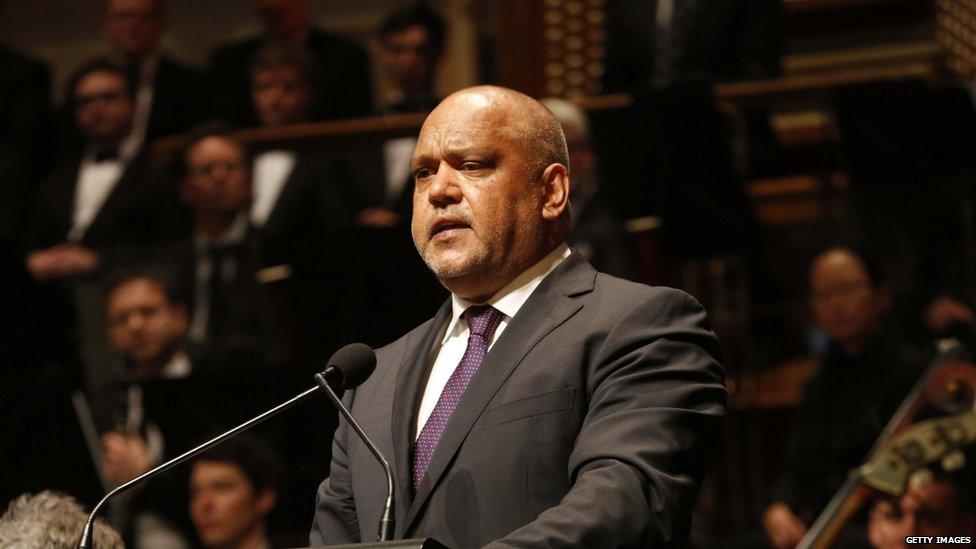
Influential Cape York leader Noel Pearson wants more Indigenous involvement in the process
Noel Pearson, founder of the Cape York Institute for Policy and Leadership:
"Largely, the process had been predetermined by the Opposition leader and the Prime Minister. In terms of input to the process going forward, the exercise was largely redundant," he told reporters after the meeting.
"We need to have Indigenous communities get their head around the questions because there is a flux of models floating around and we haven't landed [on one].
"The [referendum] question should be about including indigenous people in the democratic process of this country."

Pat Dodson says no-one in Australia should be discriminated against
Pat Dodson, West Australian Indigenous leader:
Mr Dodson said Australia's constitution was "appallingly racist" and had "to be fixed".
"We didn't come to concluded views on models or propositions but I do think we made a fair degree of progress on the steps that are needed to go forward," he told reporters after the meeting.
"These are complex moral and ethical issues for some people but I don't think we should be discriminating against anyone in this nation, and certainly not against Aboriginal people," he said.

Will the referendum succeed?
Only 8 of 44 referendums held in Australia since federation have been successful
A 1967 referendum to remove a prohibition against including Aboriginal people in the census passed with an overwhelming 91% in favour
The treatment of racial discrimination within the constitution remains the main sticking point for many Indigenous and some non-Indigenous leaders
The wording of any referendum is crucial to its success. A 1999 referendum to establish Australia as a republic failed because the public did not like the way a president would be elected

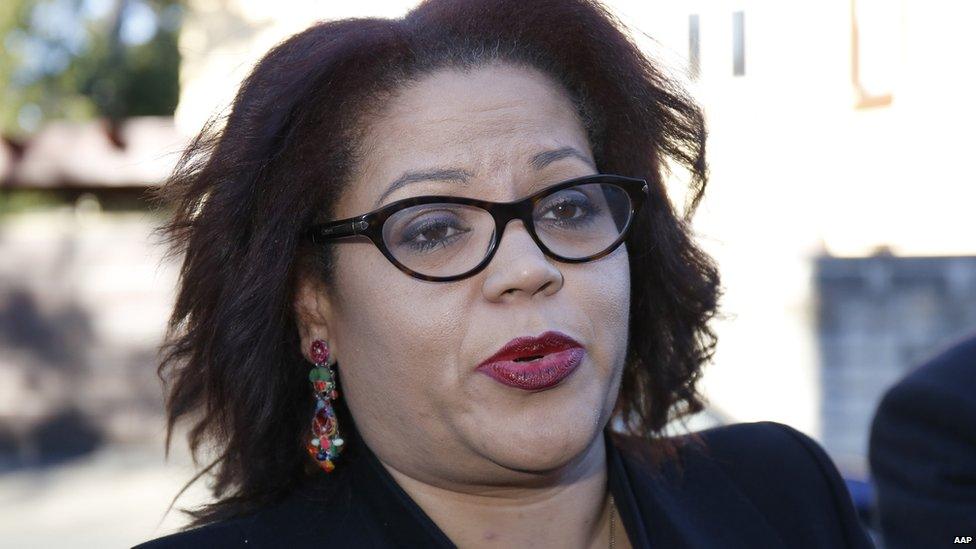
Tanya Hosch says many Australians aren't aware of the constitution's shortfalls
Joint Campaign Director of RECOGNISE, Tanya Hosch:
"The nation's leaders ultimately have to reach a consensus on a model that can win broad support," said Ms Hosch in a statement released on Monday.
"We applaud them for today's significant progress toward that goal.
"We've been able to put the issue on the radar of millions of Australians over the last three years but there are millions more who aren't yet aware of the basic issue - the lack of recognition of the first Australians and the discriminatory elements that remain in the Constitution."
National Congress of Australia's First Peoples, Kirstie Parker:
Ms Parker told the Australian Broadcasting Corp that it remained to be seen "how much real listening was done" at the summit.
"I will say this: that passionate is one thing. An unwillingness to hear what others have to say is regrettable and it is important that people treat each other with dignity and respect in this process, even if you have a difference of opinion."
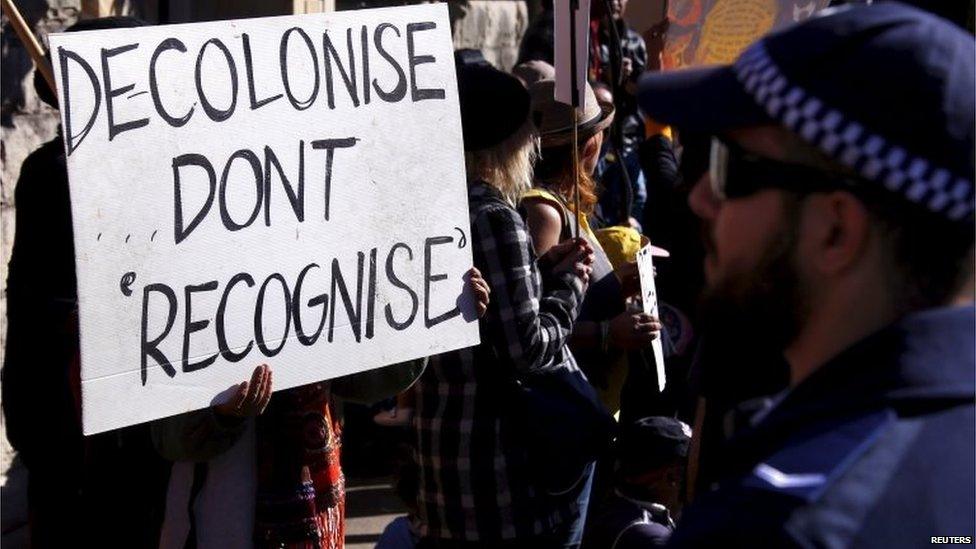
Not all Indigenous Australians were happy with the meeting
Protesters:
Indigenous people not included in the meeting were angry about how the 40 representatives were chosen.
The meeting attracted about 50 protesters, some of whom rejected representation by the Indigenous leaders inside the meeting.
Indigenous activist Ken Canning, who addressed the crowd, criticised Indigenous leaders who took part in the meeting.
"This is not just a meeting; this is an act of treason against their own people," Guardian Australia reported him as saying.
"They are legitimising everything he [Mr Abbott] has done [to Aboriginal people] by sitting down with him," Mr Canning said.
- Published6 July 2015
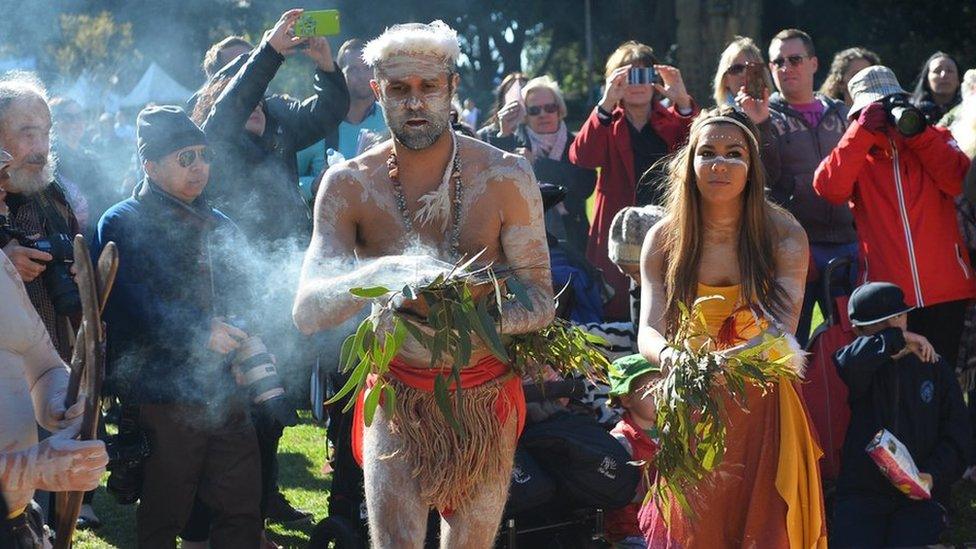
- Published12 December 2014
